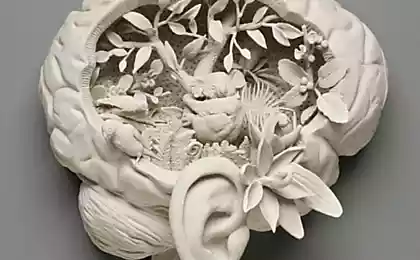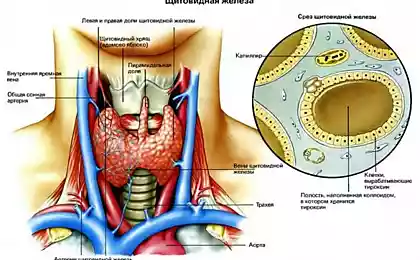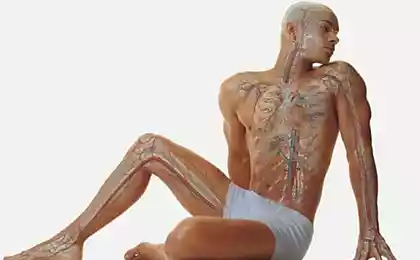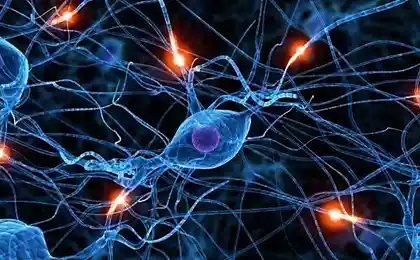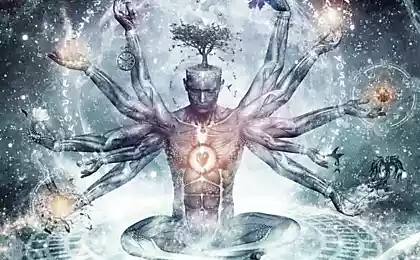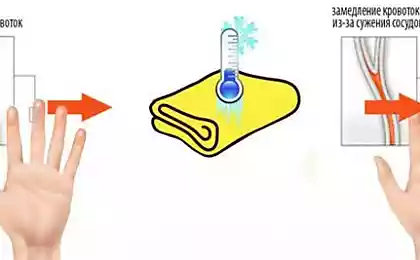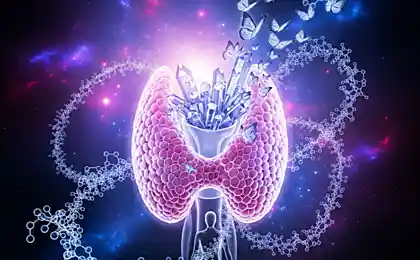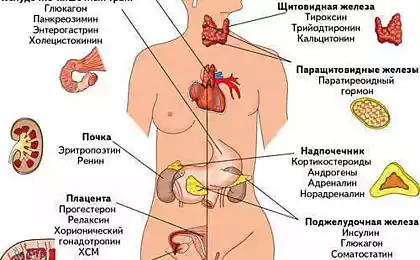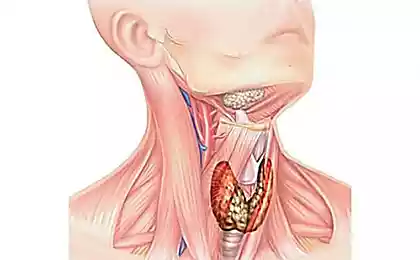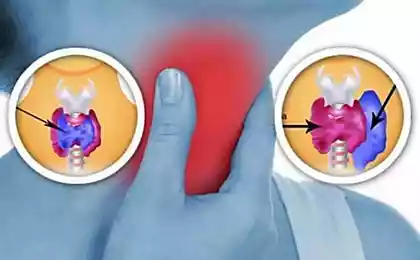728
10 misconceptions about the nervous system
Various disorders of the nervous system occur in 15-20% of the population. These disorders can manifest dystonia, chronic fatigue, depression, drowsiness by day and sleeplessness by night, fears, anxiety, apathy, headaches, irritability, increased sensitivity to weather changes and other symptoms, which are individual.
Despite compelling scientific evidence, pervasive outdated, primitive or misconceptions about the causes and ways to eliminate these States. Unfortunately, this largely contributes to the lack of knowledge among health care workers. Myths in this area are extremely hardy and bring considerable harm at least because they do not leave no choice but to put up with the resulting nervous disorders.
The most persistent and common misconceptions are as follows.
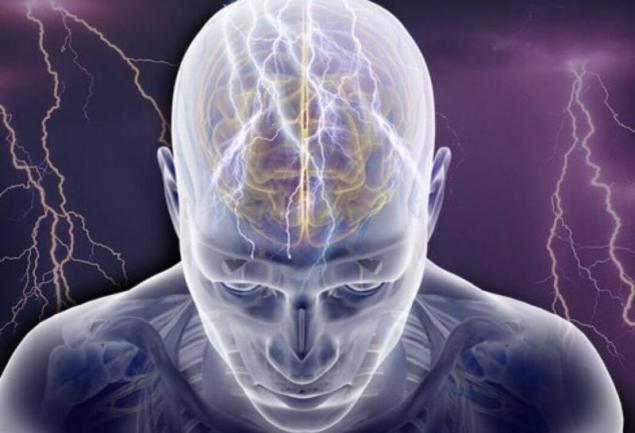
The first myth: "the Main cause of nervous disorders are stress"
If it were true, these disorders would never experience on the background of a full life well-being. The realities of life, however, often show quite the opposite. Stress really can lead to nervous disorders. But for this he must be either too strong or too long. In other cases, the effects of stress come only from those whose nervous system was broken even before the onset of stressful events.
Nervous stress here only play the role of a developer used in photography, that is, make the implicit — explicit. If, for example, a typical gust of wind knocks a wooden fence — the main reason this event will not wind, and the weakness and unreliability of the structure.
Frequent, though not obligatory indicator of the ill health of the nervous system is the increased sensitivity to the passage of atmospheric fronts. In General, for weak nervous system in the role of "stress" can be anything, for example — a dripping tap water or with a minor domestic conflict.
On the other hand, one can think of many examples when people had long been in an extremely unenviable, difficult circumstances, made them stronger and spirit, and body. The difference is small — in the right or disturbed the work of the nervous cells.
The second myth: "All diseases — from nerves"
This is one of the ancient, the most resilient misconceptions. If this statement would be fair it would mean, for example, that any army after a month of fighting fully would turn to a camp infirmary. After all, the idea of such a powerful stress as a real fight, would have to cause disease in all who participated in it. But in fact, such phenomena does not carry such mass character.
In civilian life also there are many professions associated with higher nervous activity. This — doctors "ambulance" service workers, teachers, etc. Among the representatives of these professions, however, no universal and compulsory morbidity.
The principle of "All diseases — from nerves" means that diseases occur "out of the blue", for one reason disorders of the nervous regulation. — They say that the person was completely healthy, but after caused by trouble of the experience was to test, for example, pain in the heart. Hence the conclusion: nerve stress caused heart disease.
In reality, behind all this lies something else: the fact that many diseases are hidden and not always accompanied by pain. Very often these diseases manifest themselves only when they have to meet high requirements, in particular associated with "nerves."
For example, an aching tooth may be a long time to pretend to be, it will not get hot or cold water.
Heart, which we have just mentioned, can also be affected, but in the initial or mild stages, it may not produce any pain or other unpleasant feelings. The main, and in most cases the only method of study of the heart is electrocardiogram. Thus, the conventional methods of conducting leave unrecognized the most part of heart ailments.
Quote: "ECG, taken alone and out of a heart attack to diagnose about 70% of all heart disease"
("Standards of diagnostics and treatment", St. Petersburg, 2005).
In the diagnosis of other internal organs, there are problems no less, next.
Thus, the statement "All diseases — from nerves" is initially incorrect. Nervous load just put the body in such conditions that begin to manifest the disease, which he was already ill. About the real causes and rules of treatment of these diseases — in the book "the Anatomy of vitality. The secrets of recovery of the nervous system," accessible and easy to understand.
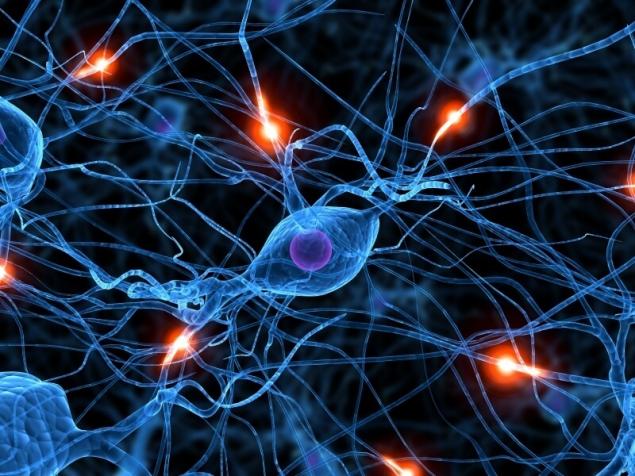
The third myth: "With nervous disorders should take only those drugs that directly act on the nervous system"
Before moving on to the facts to refute this point, you can put simple questions that need to be treated if the fish in the pond sick fish or a pond? Can be diseases of internal organs harm only to them? Is it possible that the dysfunction of any organ does not affect the state of the body?
Obviously not. But the human nervous system — the same part, such as cardiovascular, endocrine or any other. There are a number of diseases that occur directly in the brain. For their treatment must be taken medications that directly affect brain tissue. At the same time, much more often neuro-psychological problems are the result of General disturbances of physiology or biochemistry of the body. For example, chronic diseases of internal organs have a very important property: they are all, one way or another, violate the cerebral blood flow. In addition, each of these authorities is able to exert, special influence on the nervous system — due to the specific task that it performs in the body.
Simply, these problems are reduced to maintain the constancy of blood composition — the so-called "homeostasis". If this condition is not satised, then some time later disturbances those biochemical processes that enable the brain cells. This is one of the main reasons for various types of nervous disorders, which, incidentally, may be the only manifestation of diseases of internal organs.
There is no official statistics according to which patients with a chronic course of these diseases, nervous and mental disorders are observed 4 to 5 times more frequently than among the population as a whole.
A very significant experiment, when spiders were injected with blood of healthy people, and then in the life of insects, there were no changes. But, when spiders were injected with blood taken from the mentally ill, the behavior of arthropods changed dramatically. In particular, they started very differently to spin a web that was ugly, wrong and good for nothing (in disorders of certain organs in the blood may be tens of substances which today can not be identified).
Information about what diseases of the internal organs violate the brain, and accumulated a very long time. This information was confirmed, in particular, too low efficiency-improving measures applied in the weakening of the nervous system, while aiming the treatment of broken bodies had led to her imminent recovery.
Interestingly, the same observations were made and Chinese medicine many centuries ago, acupuncture is the so-called "tonic points" often gave little benefit, and dramatic healing occurred only when used terms, related to the particular weakened bodies. In the works of the classics of European medicine says that "... there is no need to assign nervousness treatment, and it is necessary to discover and attack the causes inside the body, which led to the weakening of the nervous system."
Unfortunately, such knowledge is contained only in the special scientific literature. Even more unfortunately, the detection and treatment of chronic, indolent disease does not belong to the priorities of modern outpatient medicine.
In the "Anatomy of life force..." it is visually shown, how and whereby depression of the nervous system the most frequent and common disorders of the internal organs. Given the indirect and insignificant, it would seem, are the signs that manifest these disorders. Also describes the available and effective methods of their elimination, along with a description of the mechanism of their therapeutic action.
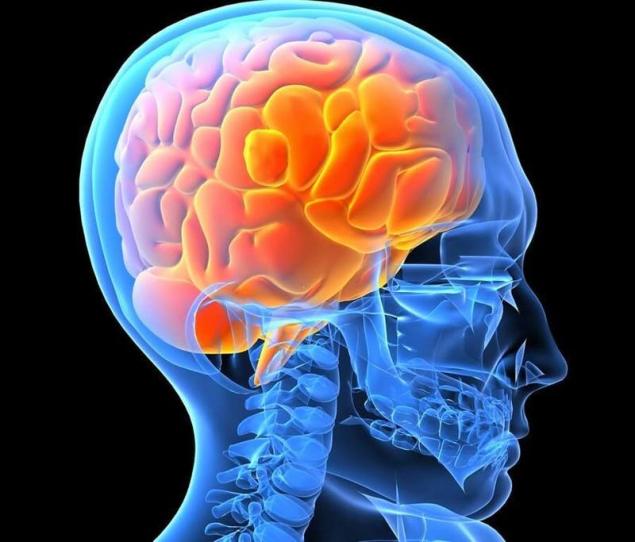
The fourth myth: "With the weakening of the vitality necessary to take tonics like ginseng, Rhodiola rosea or pantocrine"
Tonics (the so-called "adaptogens") really can't eliminate any causes of weakening of vitality. They can accept only the healthy people in front of significant physical or nervous stress, for example — before a long journey behind the wheel. The receipt of these funds persons with weakened nervous system will only lead to the fact that they will spent their last internal reserves.
Restrict the view MD, Professor I. V. Kireev:
"Toning agents improve the patient's condition for a short time, due to the individual potential of the body."
In other words, even with a very modest income you can dine in the restaurants. But only three days a month. Due to what to eat next — is unknown.
Myth five: "the Commitment and any other qualities of a person depend only on him"
Every thinking person suspects, at least, that this is not true. As for scientific views, they may be presented with the following data: for purposeful activities of the person responsible for special parts of the brain — the frontal lobes.
There are quite a lot of reasons, can disrupt their normal state. For example — labored or reduced circulation in this region of the brain. It is absolutely not affects thinking, memory and autonomic reflexes (a clinical case). However, such disruptions are subtle changes in the neuronal mechanisms of goal-setting, why a person becomes unfocused, unable to concentrate and volitional efforts to achieve the goal (in the home: "Without a king in the head", "head — wind", etc.).
Note that a violations in different areas of the brain cause a variety of changes in human psychology. So, in case of disturbances in one of these areas begin to dramatically dominate the instinct of self-preservation, unreasoning anxiety and fear, and the deviations in other areas makes people too easily amused.
In General, the most important psychological characteristics of personality in a vast, prevailing extent depend on the characteristics of certain brain structures. With EEGs, for example, revealed how affect personality of person he the dominant frequency of brain activity:
— persons with a pronounced alpha rhythm (8-13 Hz) is active, stable and reliable people. They are characterized by high activity and persistence, precision work, especially under stress, good memory;
— persons with a predominant beta rhythm (15-35 Hz) exhibited poor concentration and carelessness, allowed a large number of errors in the low working speed, found low resistance to stress.
In addition, it was found that patients who had the nerve centers act in unison with each other in the front parts of the brain — was characterized by severe authoritarianism, independence, self-confidence, criticality. But as the unison was shifted back to Central and parieto-occipital areas of the brain (respectively 50 and 20 % of subjects), these psychological qualities have changed up to the opposite.
Conducted in the U.S. research has explained, for example, why teenagers are to a greater extent than adults, tend to risky actions: drug use, casual sexual relations, driving drunk, etc. carried out after Studying the data, the researchers came to the conclusion that young people, compared with adults, significantly reduced the biological activity in those areas of the brain that are responsible for making meaningful decisions.
Along the way, to dispel another myth that people, supposedly, he creates his character. The fallacy of this judgment is to be at least from the fact that the basic traits add up to approximately four years of age. In most cases, this is the period of childhood, from which the people remember themselves. Thus, the "backbone" of the character is without taking into account our wishes (in Proverbs: "the Cub of a lion is similar to the lion," "the Onion man, the onion, and not a rose you will die").
The method of positron tomography was obtained information about what each type of character healthy persons correspond to certain characteristics of blood flow in different areas of the brain (the same, incidentally, is the basis of dividing people into two groups — introverts and extroverts).
On a similar, independent from us reasons arise, the individual features of gait, handwriting and more. With all this, it's easy to get rid of many undesirable traits of his character, if you eliminate the obstacles that interfere with the normal functioning of nerve cells. As it is — in my book.
Myth six: "cause Depression or difficult life circumstances, or wrong, pessimistic way of thinking"
Obviously, you need to accept that not all who are in difficult life conditions, and then depression. As a rule, a healthy and strong nervous system allows you to move a forced change of lifestyle without much damage to yourself. However it should be noted that this process is usually accompanied by very painful period during which the lowering of the "level of aspiration", that is the refusal from the expected or usual necessities of life.
Something similar happens in the case of the inevitable loss of loved ones. If the loss of a loved one causes a persistent and increasing negative symptoms, this leads one to suspect the presence in the body covert physical or nervous diseases. In particular, if any in such cases begins to noticeably lose weight — it is an occasion to think about the presence of stomach cancer.
As for the "sad way of thinking" and allegedly caused them depression, the situation is somewhat different: first comes depression, and then her find a different plausible explanation ("All — bad", "Life is meaningless", etc.).
On the other hand, everyone can easily remember louts daring rosy-cheeked, bursting with love for life in all its forms, but with very primitive life philosophy. Depression is a manifestation of impaired activity of brain cells. Of course, in addition there are events such as "mountain" or "great mountain." They can cause depression and perfectly healthy people, but the wounds in this case, sooner or later heal. Then they say that "Time heals".
To distinguish between a depression is sometimes very difficult, as it can hide under different clothes and masks. Even those who knows about my depression, not always can recognize another aggravation of this disease, seem to them so natural depression draw a gloomy picture of the world.
In the pages of "Anatomy of life force..." to see the full list of direct and indirect signs which will reveal themselves the possible presence of depressive disorders.

Myth seven: "If people cannot quit Smoking — so he has a weak will power"
A misconception with long roots and are extremely widespread. The fallacy of this view consists in the following.
It is known that components of tobacco smoke are beginning, sooner or later, to participate in the biochemical reactions of the body, displacing a substance specifically designed for this nature. Moreover, it distorts the most important processes in the body, Smoking causes a restructuring of the nervous system, after which it will be required all new and new portions of nicotine. When Smoking cessation in the brain must occur in the reverse changes, which will allow him once again to upgrade to the "full domestic security." But this process occurs only in those whose nervous system has high adaptive capacity, i.e. the ability to adapt (well-known examples of adaptation is the winter and the opening of a "second breath" long-distance runners).
According to statistics, the capacity to adapt is reduced, in varying degrees, in approximately 30% of the population — for reasons beyond their control are available and described below. Adaptive responses occur at the cellular level, so to increase their adaptive capacity by using "will power" is almost impossible (for it is written: "the Above head can not jump").
Described, for example, a lot of cases where people wishing to whatever was to do away with Smoking, at their request were taken away and left far away in the forest or in other places where cigarettes would be impossible. But after a day or two of tobacco abstinence became so unbearable ("physiological withdrawal"), forcing these people to smoke last year's foliage and ahead to get to the nearest settlement.
Also, staff of cardiac hospitals are well known not a single episode when the patients continued to smoke, even in the face of repeated heart attacks. Based on those realities, persons with reduced adaptability, intending to give up Smoking previously recommended the medication, artificially improving brain function — including antidepressants.
About the same way is the case with alcohol dependence.
We note in passing that the adaptive capabilities are not infinite and in individuals with a healthy nervous system. For example, one torture by criminals, consists in forced injection of hard drugs, then the person becomes a drug addict. The rest is known.
All this, however, does not negate the effectiveness described in the book methods to restore strength and normal adaptive capacity of the nerve cells.
Myth eight: "Nerve cells do not regenerate" (variant: "Angry cells are not restored")
This myth claims that nervous feelings, expressed in anger or other negative emotions, lead to irreversible destruction of nervous tissue. In fact, the death of nerve cells — the process is permanent and natural. The update of these cells occur in different areas of the brain at a speed of from 15 to 100% per year. For stress heavily "consumed" are not themselves nerve cells, and the nutrients that support their work and interaction with each other (especially the so — called "neurotransmitters").
Because of this it may be a permanent deficit of these substances and, as a result of a protracted breakdown (good to know that the substances irretrievably spent by the brain in all mental processes, including in the thinking, communication and even when a person experiences pleasure. Always acts the same natural mechanism: if any impressions becomes too much, the brain refuses to perceive (hence the proverb: "Where love is there is not quickens", "a Guest and a fish stink on the third day," etc.).
From history, for example, it is known that many Eastern rulers regularly precisas all possible earthly pleasures, completely lost the ability to enjoy anything. As a result, promised a considerable reward to anyone who could return it to them at least some joy of life.
Another example is the so-called "principle of a candy factory," according to which even people who are very fond of sweets, after a month of work in the confectionery industry there is a strong aversion to these products.
Myth nine: "Laziness is an invented disease for those who do not want to work"
It is generally believed that in humans there are only three natural instincts: self-preservation, the renewal of nature and food. Meanwhile, those instincts in humans, much more. One of them is "the instinct of saving vitality". In folklore it is present, for example in the form of the proverb "a Fool will think when you are tired".
This instinct inherent in all living things in scientific experiments of any alien specimen always find the easiest way to the trough. Finding it, they only use them ("We are all lazy and incurious" A. S. Pushkin).
At the same time, there is a certain amount of people who have a constant need for labor. In this way they escape from internal discomfort caused by excess energy. But in this case, the forces they are spent only on activities that can bring benefit or pleasure, such as playing football.
The need to expend energy on meaningless work causes suffering and active rejection. For example, for the punishment of the Teens in the time of Peter I, they were forced, literally "to pound water in a mortar". By and large, instinct of saving vitality requires quite a rough equilibrium between labor and receive reward. Long-term attempts to ignore this condition has led, in particular, to the abolition of serfdom in Russia and the economic collapse of the Soviet Union.
Laziness is nothing like a manifestation of the instinct of saving vitality. Frequent occurrence of this feeling indicates that the reserves of energy in the body is reduced. Laziness, apathy is the most common symptoms of chronic fatigue syndrome — that is, modified, unhealthy condition of the body. But with any condition of the body a lot of energy is spent on its internal queries including maintaining body temperature, heart rate, respiratory motion. Quite a large amount of energy is spent just to keep the membranes of nerve cells at a certain voltage, which is equivalent to the simple maintenance of the consciousness. Thus, the appearance of laziness or apathy is a biological protection against "squandering" of life-forces in case of their deficiency. Lack of understanding of this mechanism is the breeding ground for countless family conflicts, and causes in many people the ideas of self-blame ("I was too lazy").
Myth ten: "Chronic fatigue will pass, if you give the body a rest"
Disclaimer: healthy people, even associated with severe and routine physical work, strength fully recovered after a night's sleep.
At the same time, many feel tired all the time and in the absence of muscle loading as such. The solution of this contradiction is that the formation or release of energy in the body can be broken at any stage, because of various internal reasons.
Also interesting: the Thyroid gland: psychosomatic problems
The myth about vitamins. How is it that we believe in their favour?
For example, one of them is invisible weakening of the thyroid gland (hormones produced by this gland — the same kerosene, which is sprinkled on the raw wood). As a result, the exchange of matter and energy in the body and brain slows down, becoming defective.
Very often, unfortunately, such a reason neurological disorders are ignored by psychiatrists and physicians of other specialties. For reference — up to 14% of patients referred to psychiatrists or psychotherapists about weakness or depression, in fact, suffering only from reduced activity of the thyroid gland.published
Excerpt from the book Andrew Tornova "Anatomy of life force"
P. S. And remember, only by changing their consumption — together we change the world! ©
Source: ezotera.ariom.ru/2016/06/18/nerv.html
Despite compelling scientific evidence, pervasive outdated, primitive or misconceptions about the causes and ways to eliminate these States. Unfortunately, this largely contributes to the lack of knowledge among health care workers. Myths in this area are extremely hardy and bring considerable harm at least because they do not leave no choice but to put up with the resulting nervous disorders.
The most persistent and common misconceptions are as follows.

The first myth: "the Main cause of nervous disorders are stress"
If it were true, these disorders would never experience on the background of a full life well-being. The realities of life, however, often show quite the opposite. Stress really can lead to nervous disorders. But for this he must be either too strong or too long. In other cases, the effects of stress come only from those whose nervous system was broken even before the onset of stressful events.
Nervous stress here only play the role of a developer used in photography, that is, make the implicit — explicit. If, for example, a typical gust of wind knocks a wooden fence — the main reason this event will not wind, and the weakness and unreliability of the structure.
Frequent, though not obligatory indicator of the ill health of the nervous system is the increased sensitivity to the passage of atmospheric fronts. In General, for weak nervous system in the role of "stress" can be anything, for example — a dripping tap water or with a minor domestic conflict.
On the other hand, one can think of many examples when people had long been in an extremely unenviable, difficult circumstances, made them stronger and spirit, and body. The difference is small — in the right or disturbed the work of the nervous cells.
The second myth: "All diseases — from nerves"
This is one of the ancient, the most resilient misconceptions. If this statement would be fair it would mean, for example, that any army after a month of fighting fully would turn to a camp infirmary. After all, the idea of such a powerful stress as a real fight, would have to cause disease in all who participated in it. But in fact, such phenomena does not carry such mass character.
In civilian life also there are many professions associated with higher nervous activity. This — doctors "ambulance" service workers, teachers, etc. Among the representatives of these professions, however, no universal and compulsory morbidity.
The principle of "All diseases — from nerves" means that diseases occur "out of the blue", for one reason disorders of the nervous regulation. — They say that the person was completely healthy, but after caused by trouble of the experience was to test, for example, pain in the heart. Hence the conclusion: nerve stress caused heart disease.
In reality, behind all this lies something else: the fact that many diseases are hidden and not always accompanied by pain. Very often these diseases manifest themselves only when they have to meet high requirements, in particular associated with "nerves."
For example, an aching tooth may be a long time to pretend to be, it will not get hot or cold water.
Heart, which we have just mentioned, can also be affected, but in the initial or mild stages, it may not produce any pain or other unpleasant feelings. The main, and in most cases the only method of study of the heart is electrocardiogram. Thus, the conventional methods of conducting leave unrecognized the most part of heart ailments.
Quote: "ECG, taken alone and out of a heart attack to diagnose about 70% of all heart disease"
("Standards of diagnostics and treatment", St. Petersburg, 2005).
In the diagnosis of other internal organs, there are problems no less, next.
Thus, the statement "All diseases — from nerves" is initially incorrect. Nervous load just put the body in such conditions that begin to manifest the disease, which he was already ill. About the real causes and rules of treatment of these diseases — in the book "the Anatomy of vitality. The secrets of recovery of the nervous system," accessible and easy to understand.

The third myth: "With nervous disorders should take only those drugs that directly act on the nervous system"
Before moving on to the facts to refute this point, you can put simple questions that need to be treated if the fish in the pond sick fish or a pond? Can be diseases of internal organs harm only to them? Is it possible that the dysfunction of any organ does not affect the state of the body?
Obviously not. But the human nervous system — the same part, such as cardiovascular, endocrine or any other. There are a number of diseases that occur directly in the brain. For their treatment must be taken medications that directly affect brain tissue. At the same time, much more often neuro-psychological problems are the result of General disturbances of physiology or biochemistry of the body. For example, chronic diseases of internal organs have a very important property: they are all, one way or another, violate the cerebral blood flow. In addition, each of these authorities is able to exert, special influence on the nervous system — due to the specific task that it performs in the body.
Simply, these problems are reduced to maintain the constancy of blood composition — the so-called "homeostasis". If this condition is not satised, then some time later disturbances those biochemical processes that enable the brain cells. This is one of the main reasons for various types of nervous disorders, which, incidentally, may be the only manifestation of diseases of internal organs.
There is no official statistics according to which patients with a chronic course of these diseases, nervous and mental disorders are observed 4 to 5 times more frequently than among the population as a whole.
A very significant experiment, when spiders were injected with blood of healthy people, and then in the life of insects, there were no changes. But, when spiders were injected with blood taken from the mentally ill, the behavior of arthropods changed dramatically. In particular, they started very differently to spin a web that was ugly, wrong and good for nothing (in disorders of certain organs in the blood may be tens of substances which today can not be identified).
Information about what diseases of the internal organs violate the brain, and accumulated a very long time. This information was confirmed, in particular, too low efficiency-improving measures applied in the weakening of the nervous system, while aiming the treatment of broken bodies had led to her imminent recovery.
Interestingly, the same observations were made and Chinese medicine many centuries ago, acupuncture is the so-called "tonic points" often gave little benefit, and dramatic healing occurred only when used terms, related to the particular weakened bodies. In the works of the classics of European medicine says that "... there is no need to assign nervousness treatment, and it is necessary to discover and attack the causes inside the body, which led to the weakening of the nervous system."
Unfortunately, such knowledge is contained only in the special scientific literature. Even more unfortunately, the detection and treatment of chronic, indolent disease does not belong to the priorities of modern outpatient medicine.
In the "Anatomy of life force..." it is visually shown, how and whereby depression of the nervous system the most frequent and common disorders of the internal organs. Given the indirect and insignificant, it would seem, are the signs that manifest these disorders. Also describes the available and effective methods of their elimination, along with a description of the mechanism of their therapeutic action.

The fourth myth: "With the weakening of the vitality necessary to take tonics like ginseng, Rhodiola rosea or pantocrine"
Tonics (the so-called "adaptogens") really can't eliminate any causes of weakening of vitality. They can accept only the healthy people in front of significant physical or nervous stress, for example — before a long journey behind the wheel. The receipt of these funds persons with weakened nervous system will only lead to the fact that they will spent their last internal reserves.
Restrict the view MD, Professor I. V. Kireev:
"Toning agents improve the patient's condition for a short time, due to the individual potential of the body."
In other words, even with a very modest income you can dine in the restaurants. But only three days a month. Due to what to eat next — is unknown.
Myth five: "the Commitment and any other qualities of a person depend only on him"
Every thinking person suspects, at least, that this is not true. As for scientific views, they may be presented with the following data: for purposeful activities of the person responsible for special parts of the brain — the frontal lobes.
There are quite a lot of reasons, can disrupt their normal state. For example — labored or reduced circulation in this region of the brain. It is absolutely not affects thinking, memory and autonomic reflexes (a clinical case). However, such disruptions are subtle changes in the neuronal mechanisms of goal-setting, why a person becomes unfocused, unable to concentrate and volitional efforts to achieve the goal (in the home: "Without a king in the head", "head — wind", etc.).
Note that a violations in different areas of the brain cause a variety of changes in human psychology. So, in case of disturbances in one of these areas begin to dramatically dominate the instinct of self-preservation, unreasoning anxiety and fear, and the deviations in other areas makes people too easily amused.
In General, the most important psychological characteristics of personality in a vast, prevailing extent depend on the characteristics of certain brain structures. With EEGs, for example, revealed how affect personality of person he the dominant frequency of brain activity:
— persons with a pronounced alpha rhythm (8-13 Hz) is active, stable and reliable people. They are characterized by high activity and persistence, precision work, especially under stress, good memory;
— persons with a predominant beta rhythm (15-35 Hz) exhibited poor concentration and carelessness, allowed a large number of errors in the low working speed, found low resistance to stress.
In addition, it was found that patients who had the nerve centers act in unison with each other in the front parts of the brain — was characterized by severe authoritarianism, independence, self-confidence, criticality. But as the unison was shifted back to Central and parieto-occipital areas of the brain (respectively 50 and 20 % of subjects), these psychological qualities have changed up to the opposite.
Conducted in the U.S. research has explained, for example, why teenagers are to a greater extent than adults, tend to risky actions: drug use, casual sexual relations, driving drunk, etc. carried out after Studying the data, the researchers came to the conclusion that young people, compared with adults, significantly reduced the biological activity in those areas of the brain that are responsible for making meaningful decisions.
Along the way, to dispel another myth that people, supposedly, he creates his character. The fallacy of this judgment is to be at least from the fact that the basic traits add up to approximately four years of age. In most cases, this is the period of childhood, from which the people remember themselves. Thus, the "backbone" of the character is without taking into account our wishes (in Proverbs: "the Cub of a lion is similar to the lion," "the Onion man, the onion, and not a rose you will die").
The method of positron tomography was obtained information about what each type of character healthy persons correspond to certain characteristics of blood flow in different areas of the brain (the same, incidentally, is the basis of dividing people into two groups — introverts and extroverts).
On a similar, independent from us reasons arise, the individual features of gait, handwriting and more. With all this, it's easy to get rid of many undesirable traits of his character, if you eliminate the obstacles that interfere with the normal functioning of nerve cells. As it is — in my book.
Myth six: "cause Depression or difficult life circumstances, or wrong, pessimistic way of thinking"
Obviously, you need to accept that not all who are in difficult life conditions, and then depression. As a rule, a healthy and strong nervous system allows you to move a forced change of lifestyle without much damage to yourself. However it should be noted that this process is usually accompanied by very painful period during which the lowering of the "level of aspiration", that is the refusal from the expected or usual necessities of life.
Something similar happens in the case of the inevitable loss of loved ones. If the loss of a loved one causes a persistent and increasing negative symptoms, this leads one to suspect the presence in the body covert physical or nervous diseases. In particular, if any in such cases begins to noticeably lose weight — it is an occasion to think about the presence of stomach cancer.
As for the "sad way of thinking" and allegedly caused them depression, the situation is somewhat different: first comes depression, and then her find a different plausible explanation ("All — bad", "Life is meaningless", etc.).
On the other hand, everyone can easily remember louts daring rosy-cheeked, bursting with love for life in all its forms, but with very primitive life philosophy. Depression is a manifestation of impaired activity of brain cells. Of course, in addition there are events such as "mountain" or "great mountain." They can cause depression and perfectly healthy people, but the wounds in this case, sooner or later heal. Then they say that "Time heals".
To distinguish between a depression is sometimes very difficult, as it can hide under different clothes and masks. Even those who knows about my depression, not always can recognize another aggravation of this disease, seem to them so natural depression draw a gloomy picture of the world.
In the pages of "Anatomy of life force..." to see the full list of direct and indirect signs which will reveal themselves the possible presence of depressive disorders.

Myth seven: "If people cannot quit Smoking — so he has a weak will power"
A misconception with long roots and are extremely widespread. The fallacy of this view consists in the following.
It is known that components of tobacco smoke are beginning, sooner or later, to participate in the biochemical reactions of the body, displacing a substance specifically designed for this nature. Moreover, it distorts the most important processes in the body, Smoking causes a restructuring of the nervous system, after which it will be required all new and new portions of nicotine. When Smoking cessation in the brain must occur in the reverse changes, which will allow him once again to upgrade to the "full domestic security." But this process occurs only in those whose nervous system has high adaptive capacity, i.e. the ability to adapt (well-known examples of adaptation is the winter and the opening of a "second breath" long-distance runners).
According to statistics, the capacity to adapt is reduced, in varying degrees, in approximately 30% of the population — for reasons beyond their control are available and described below. Adaptive responses occur at the cellular level, so to increase their adaptive capacity by using "will power" is almost impossible (for it is written: "the Above head can not jump").
Described, for example, a lot of cases where people wishing to whatever was to do away with Smoking, at their request were taken away and left far away in the forest or in other places where cigarettes would be impossible. But after a day or two of tobacco abstinence became so unbearable ("physiological withdrawal"), forcing these people to smoke last year's foliage and ahead to get to the nearest settlement.
Also, staff of cardiac hospitals are well known not a single episode when the patients continued to smoke, even in the face of repeated heart attacks. Based on those realities, persons with reduced adaptability, intending to give up Smoking previously recommended the medication, artificially improving brain function — including antidepressants.
About the same way is the case with alcohol dependence.
We note in passing that the adaptive capabilities are not infinite and in individuals with a healthy nervous system. For example, one torture by criminals, consists in forced injection of hard drugs, then the person becomes a drug addict. The rest is known.
All this, however, does not negate the effectiveness described in the book methods to restore strength and normal adaptive capacity of the nerve cells.
Myth eight: "Nerve cells do not regenerate" (variant: "Angry cells are not restored")
This myth claims that nervous feelings, expressed in anger or other negative emotions, lead to irreversible destruction of nervous tissue. In fact, the death of nerve cells — the process is permanent and natural. The update of these cells occur in different areas of the brain at a speed of from 15 to 100% per year. For stress heavily "consumed" are not themselves nerve cells, and the nutrients that support their work and interaction with each other (especially the so — called "neurotransmitters").
Because of this it may be a permanent deficit of these substances and, as a result of a protracted breakdown (good to know that the substances irretrievably spent by the brain in all mental processes, including in the thinking, communication and even when a person experiences pleasure. Always acts the same natural mechanism: if any impressions becomes too much, the brain refuses to perceive (hence the proverb: "Where love is there is not quickens", "a Guest and a fish stink on the third day," etc.).
From history, for example, it is known that many Eastern rulers regularly precisas all possible earthly pleasures, completely lost the ability to enjoy anything. As a result, promised a considerable reward to anyone who could return it to them at least some joy of life.
Another example is the so-called "principle of a candy factory," according to which even people who are very fond of sweets, after a month of work in the confectionery industry there is a strong aversion to these products.
Myth nine: "Laziness is an invented disease for those who do not want to work"
It is generally believed that in humans there are only three natural instincts: self-preservation, the renewal of nature and food. Meanwhile, those instincts in humans, much more. One of them is "the instinct of saving vitality". In folklore it is present, for example in the form of the proverb "a Fool will think when you are tired".
This instinct inherent in all living things in scientific experiments of any alien specimen always find the easiest way to the trough. Finding it, they only use them ("We are all lazy and incurious" A. S. Pushkin).
At the same time, there is a certain amount of people who have a constant need for labor. In this way they escape from internal discomfort caused by excess energy. But in this case, the forces they are spent only on activities that can bring benefit or pleasure, such as playing football.
The need to expend energy on meaningless work causes suffering and active rejection. For example, for the punishment of the Teens in the time of Peter I, they were forced, literally "to pound water in a mortar". By and large, instinct of saving vitality requires quite a rough equilibrium between labor and receive reward. Long-term attempts to ignore this condition has led, in particular, to the abolition of serfdom in Russia and the economic collapse of the Soviet Union.
Laziness is nothing like a manifestation of the instinct of saving vitality. Frequent occurrence of this feeling indicates that the reserves of energy in the body is reduced. Laziness, apathy is the most common symptoms of chronic fatigue syndrome — that is, modified, unhealthy condition of the body. But with any condition of the body a lot of energy is spent on its internal queries including maintaining body temperature, heart rate, respiratory motion. Quite a large amount of energy is spent just to keep the membranes of nerve cells at a certain voltage, which is equivalent to the simple maintenance of the consciousness. Thus, the appearance of laziness or apathy is a biological protection against "squandering" of life-forces in case of their deficiency. Lack of understanding of this mechanism is the breeding ground for countless family conflicts, and causes in many people the ideas of self-blame ("I was too lazy").
Myth ten: "Chronic fatigue will pass, if you give the body a rest"
Disclaimer: healthy people, even associated with severe and routine physical work, strength fully recovered after a night's sleep.
At the same time, many feel tired all the time and in the absence of muscle loading as such. The solution of this contradiction is that the formation or release of energy in the body can be broken at any stage, because of various internal reasons.
Also interesting: the Thyroid gland: psychosomatic problems
The myth about vitamins. How is it that we believe in their favour?
For example, one of them is invisible weakening of the thyroid gland (hormones produced by this gland — the same kerosene, which is sprinkled on the raw wood). As a result, the exchange of matter and energy in the body and brain slows down, becoming defective.
Very often, unfortunately, such a reason neurological disorders are ignored by psychiatrists and physicians of other specialties. For reference — up to 14% of patients referred to psychiatrists or psychotherapists about weakness or depression, in fact, suffering only from reduced activity of the thyroid gland.published
Excerpt from the book Andrew Tornova "Anatomy of life force"
P. S. And remember, only by changing their consumption — together we change the world! ©
Source: ezotera.ariom.ru/2016/06/18/nerv.html

